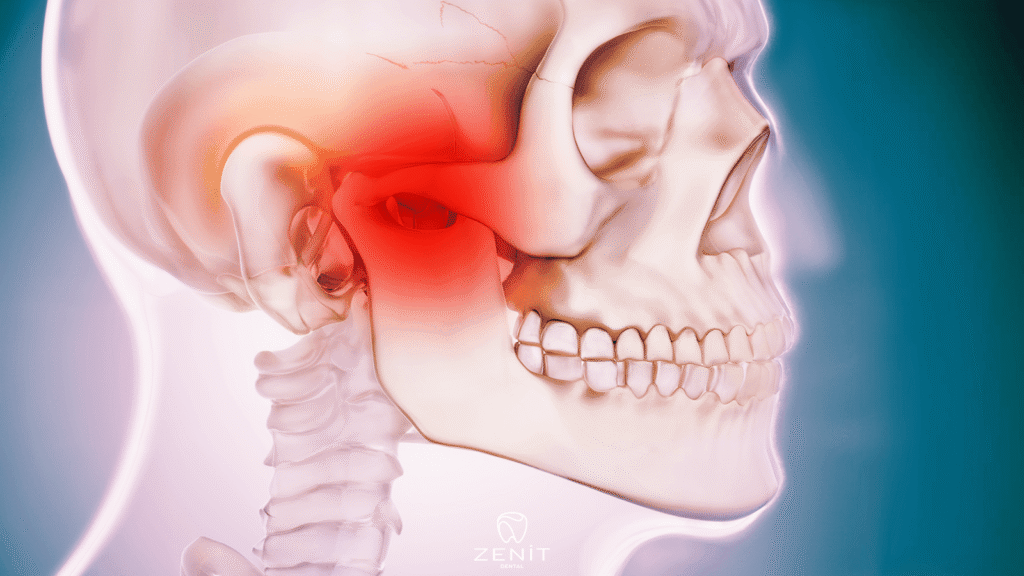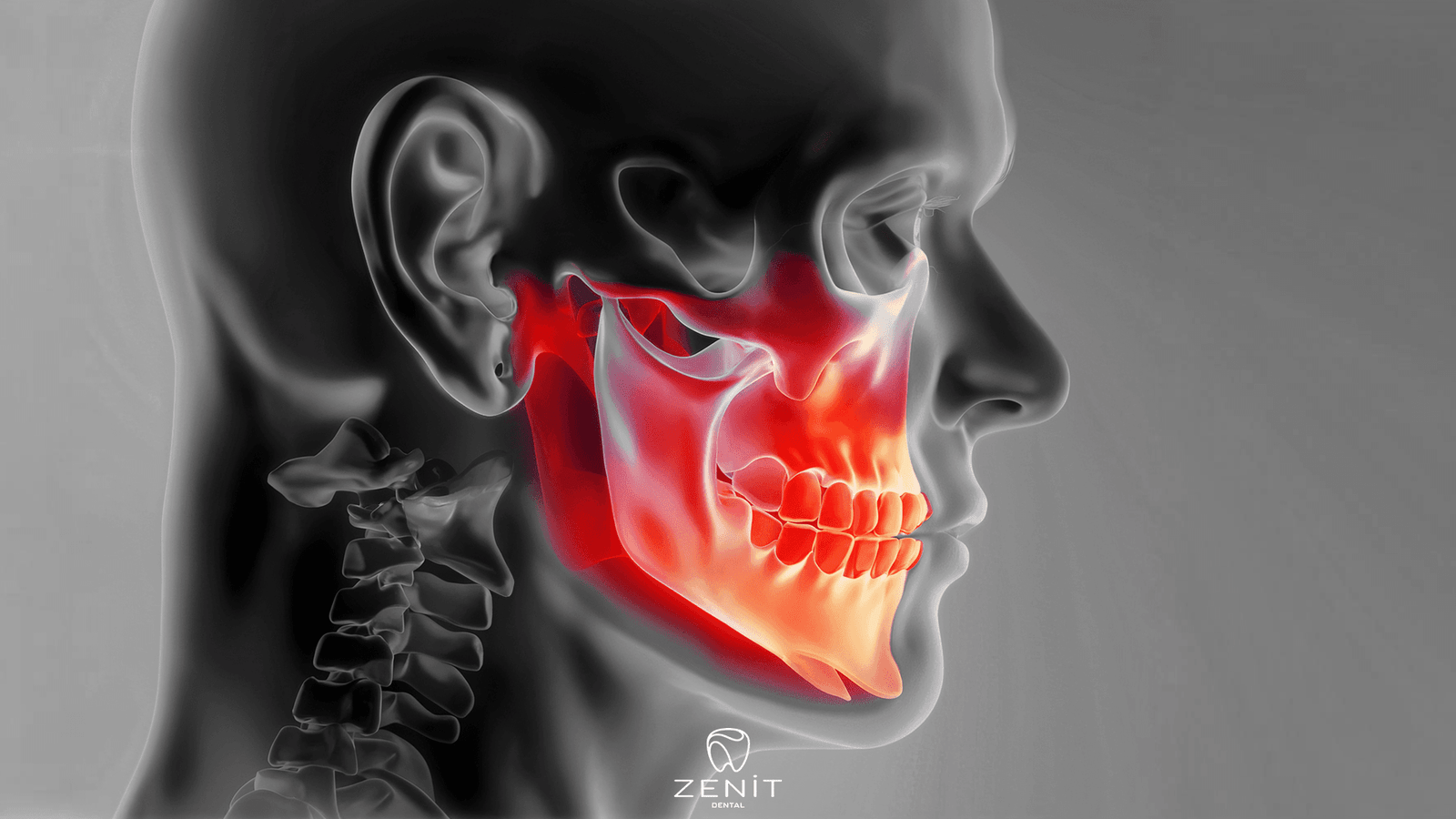What Causes Jaw Tightness?
Jaw clenching is an involuntary contraction or tightening of the jaw muscles. This condition can seriously affect quality of life and lead to various health problems. Jaw tightness can cause difficulties in activities of daily living and negatively impact individuals’ social, work and personal lives. Having knowledge about the causes and treatment methods of jaw contraction is very important for individuals experiencing this condition.
Main Causes of Jaw Tightness
Stress and Anxiety
Stress and anxiety can cause the jaw muscles to contract, as in many other parts of our body. When we are under stress, contractions occur in some parts of our body and the jaw is one of these areas. In stressful situations, our body responds with a “fight or flight” response, causing our muscles to tense. Prolonged stress and anxiety can cause the jaw muscles to constantly tighten, which can become painful and uncomfortable over time. Regular relaxation techniques and stress management strategies can be effective in reducing jaw stiffness.
Bruxism (Teeth Grinding)
Bruxism is the involuntary clenching or grinding of the teeth during sleep. This can cause the jaw muscles to become overworked and contract. Bruxism is often caused by stress, sleep disorders or teeth alignment problems. Long-term bruxism can cause erosion of tooth enamel, cracks in teeth, and extreme fatigue in the jaw muscles. Night aligners can be used to manage bruxism and can help protect teeth and relax jaw muscles. Additionally, it is important to address the underlying causes of bruxism (for example, stress management or dental treatment).
Temporomandibular Joint (TMJ) Disorders
Temporomandibular joint (TMJ) disorders are characterized by pain and dysfunction in the jaw joint and surrounding muscles. These disorders can lead to contraction of the jaw muscles and painful conditions. TMJ disorders can make daily activities such as chewing, speaking and swallowing difficult. Causes of TMJ disorders can include jaw injuries, arthritis, teeth alignment problems, and stress. Treatment options include physical therapy, bite plates, medication and surgery. TMJ disorders can seriously impact quality of life, so early diagnosis and treatment is important.
Dental Problems
Tooth decay, misaligned teeth, or missing teeth can cause the jaw muscles to work unbalanced. This may trigger jaw contractions. For example, a missing tooth or a misaligned tooth can cause the jaw muscles to work unbalanced during chewing, causing tension and contraction in the muscles. Regular dentist check-ups and necessary dental treatments can help prevent such problems. Additionally, learning and practicing correct chewing techniques can also reduce jaw contractions.
Bad Posture
Sitting or working in the wrong position for long periods of time can cause tension in the jaw muscles, as well as the neck and shoulder muscles. Poor posture can cause the jaw muscles to tighten. For example, sitting in front of a computer with poor posture for long periods of time can cause tension in the neck and shoulder muscles, as well as the jaw muscles. Such conditions can cause the jaw muscles to constantly contract and become painful and uncomfortable over time. Arranging ergonomic work areas, learning and applying correct posture techniques can help prevent and reduce such problems.

It is important to be aware of these causes and seek professional help when necessary to manage jaw contractions and improve quality of life. If you are experiencing jaw contraction problems, I recommend you consult a dentist.
Symptoms of Jaw Tightness
- Pain During Chewing: Individuals experiencing jaw contraction may feel intense pain while eating or chewing gum. This pain is caused by excessive stretching and contraction of the jaw muscles. Long-term chewing movements can further tire the jaw muscles and increase the severity of pain.
- Difficulty Opening or Closing the Jaw: Jaw contraction can inhibit normal movements of the jaw joint. This may cause you to have difficulty opening or closing your mouth. In some cases, the jaw may become completely locked and unable to be moved, requiring immediate medical attention.
- Sensitivity in the Jaw and Face Area: Constant contraction of the jaw muscles can cause sensitivity in the chin and face area. This sensitivity may increase with touch or pressure. This facial sensitivity can make daily activities difficult and cause discomfort.
- Headaches: Jaw contractions can cause headaches. These pains are usually concentrated in the temple area and may show migraine-like symptoms. Constant tension of the jaw muscles can also affect the head and neck muscles, causing widespread pain.
- Earache: Jaw contractions can cause earaches. Because the jaw joint is close to the ear area, tension in the jaw muscles can cause pain and a feeling of congestion in the ear. This condition is often mistaken for an ear infection.
- Pain in the Neck and Shoulder Area: Jaw contraction can cause pain not only in the jaw and facial area, but also in the neck and shoulder muscles. The muscles in these areas are connected to the jaw muscles, and jaw contractions can also create tension in these muscles. This pain can be exacerbated by posture disorders and long-term stress.
How to Get Rid of Jaw Tightness
There are various approaches to the treatment of jaw contraction. First, stress management is of great importance; Relaxation techniques such as yoga, meditation and deep breathing exercises can help reduce stress and prevent jaw clenching. Physical therapy includes various exercises and massage techniques to strengthen and stretch the jaw muscles, and a physiotherapist can apply special techniques in this regard.
For jaw contractions caused by bruxism, dentists recommend the use of night guards; This plate helps relax the jaw muscles by preventing teeth from clenching and grinding. Additionally, painkillers, muscle relaxants, and anti-inflammatory medications can reduce pain and inflammation caused by jaw contractions, but medication use should be with the advice of a doctor. Dental treatments include procedures such as correcting misaligned teeth, treating tooth decay, and replacing missing teeth, and these treatments prevent the jaw muscles from working unbalanced and contribute to the reduction of contractions.

Jaw Contraction While Yawning
Jaw clenching when yawning is a common condition experienced by many people and is usually characterized by a sudden and involuntary contraction of the jaw muscles. This can create temporary discomfort and cause pain in the jaw area during the act of yawning. One of the most common causes of jaw clenching when yawning is overuse or fatigue of the jaw muscles. In daily life, jaw muscles work constantly during speaking, chewing and other jaw movements. Overuse of these muscles can result in a sudden contraction during stretching. Additionally, stress and anxiety can cause the jaw muscles to tighten and contract during yawning.
Another common cause is temporomandibular joint (TMJ) disorders. TMJ disorders are characterized by pain and dysfunction in the jaw joint and surrounding muscles. These disorders can cause the jaw muscles to contract suddenly during yawning.

Comments are closed